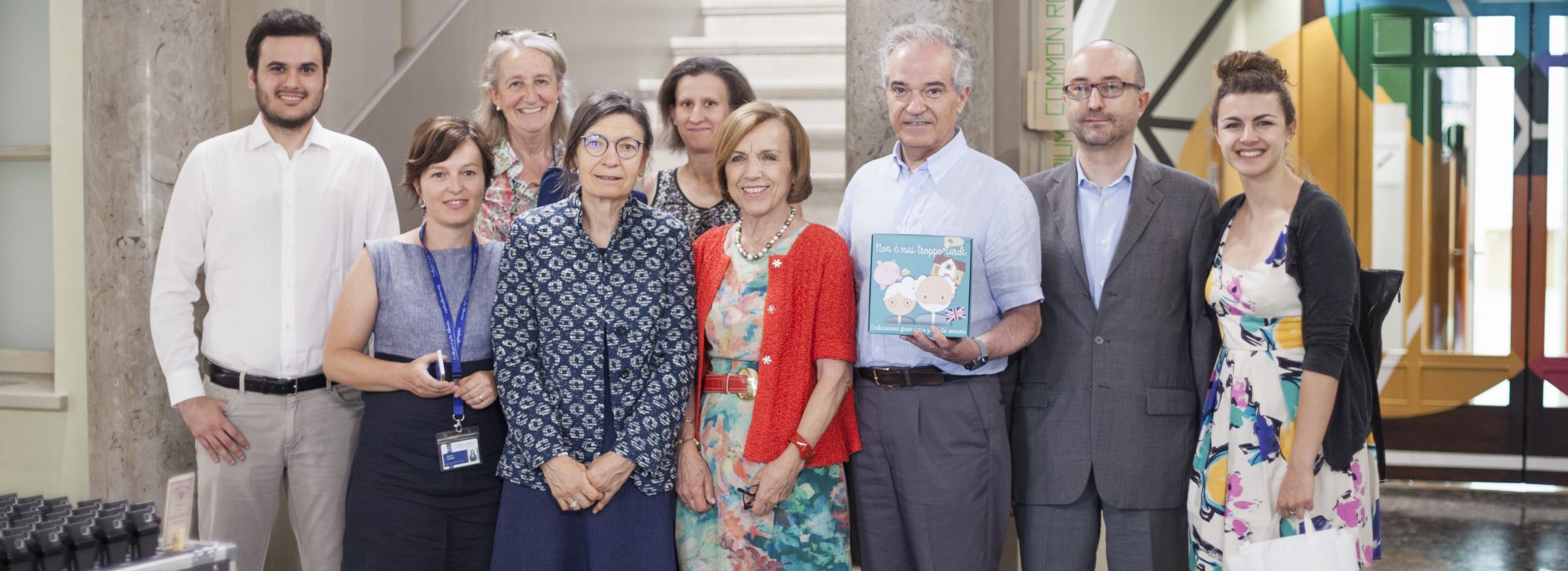An account of the Finkit final conference/results by Giovanna Guzzetti
Financial Literacy, a way to freedom. So John Hope Bryant talked, while honouring Martin Luther King. Words that do not sound out of tune in a country when, more than 50 years ago, Robert Kennedy stated that not only numbers, finance and economics, but also citizens’ happiness and wellbeing, make up GDP.
Accordingly, Finkit has been carried out with the aim to give more freedom to its targets (i.e. vulnerable people). Where freedom means also ability to choice and awareness.
Apparently, we almost came to an end with our Finkit project, as results have been officially presented at the final conference on June 25; actually a new start is here…because FL is a goal to accomplish on a widespread basis, hopefully all over the world.
FL is not associated only with money, being rich and/or well off. FL is a way to give people larger inclusion, to make them able to decode changes in society, economy, welfare so to avoid - to the largest extent – mistakes in both using and investing money, also thanks to a better knowledge of risks and risk diversification.
A widespread diffusion of FL necessarily entails a radical change in social policies which generally are used to treat and mend (i.e. they intervene after poverty/illness have produced their negative effects ). FL, on its side, is useful to foster individuals’ wellbeing because it helps them to plan and build by means of what it’s actually available, and gives them both competences and hope to face the future.
What came out at the conference – as Annamaria Lusardi, in her function of academic director of GWSB’s Global Financial Literacy Excellence Center (GFLEC) and Coordinator of Italy’s recently set up FL Committee, pointed out during a session of “Collegio Aperto” on the same day is that:
- FL is low around the world – Less than 50% of the population is able to deal with the so called Big Three: a) compound interest rate; b) inflation rate; c) risk diversification, which is the less known among the three;
- Many people, mainly the oldest, are NOT aware they do NOT know;
- Gender gap is high – By answering the questions, women admit they do not know, thus they do no make mistakes. And all this makes women an ideal target for FL ad hoc programs.
Not to forget the strategic and long term value of FL as for pensions and reduction disparities overall. “Who knows more – it has been stated – earns more, makes better plans with positive impacts on his/her lifecycle, most in the third/fourth age”.
PS - At the end of all this work I’ve been blissfully honoured to cooperate with the Italian team led by Professor Elsa Fornero and with out French, Spanish and Portuguese colleagues. A small scale but true example of how Europe is useful and works 🙂

